Log in
Log in to use the My Festival Planner feature.
Please note:
Due to a database changeover, it is no longer possible to log in with an account from previous Berlinale editions. Please create a new account.
Using the icons in the programme you can create your individual festival schedule and subscribe to the iCal feed.
Log in
Log in to use the My Favourites feature.
Please note:
Due to a database changeover, it is no longer possible to log in with an account from previous Berlinale editions. Please create a new account.
Use the icons in the programme to create a list of your favourites.
Filter
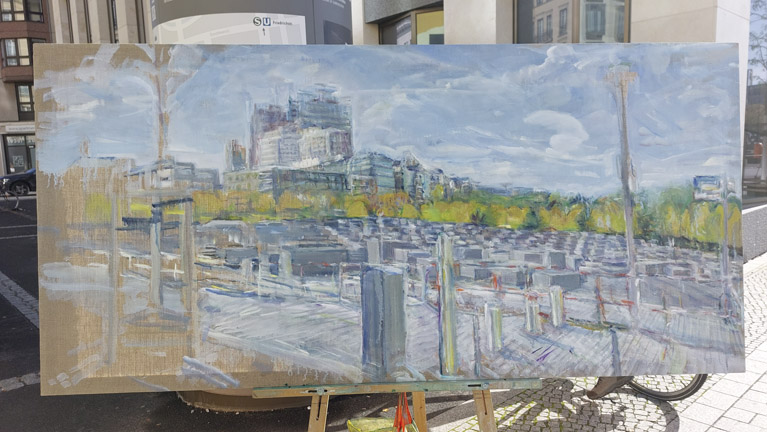
2024 (2023)
Twofold mise-en-scène. Views of a city and a family. Political Berlin, private Franconia. Painting within the film image. Realities observed within a necessarily shifting frame. A mobile phone film with the potential for deceleration. A social medium.
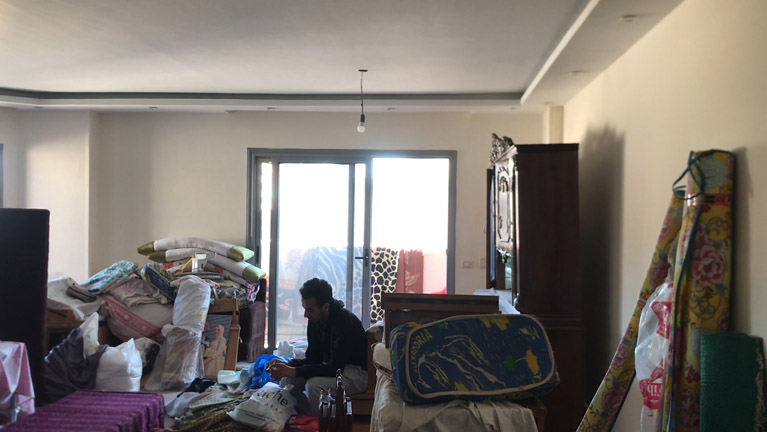
Akher Youm
The Last Day
Brothers Ziad and Moody spend their last day in their family home, which is scheduled for demolition. As they move furniture outside, Moody turns on the TV to pass the time, and they hear news about the demolition of Palestinian homes in Jerusalem.

Al Basateen
The Orchards
In 2015, in Damascus, the Basateen al-Razi district and its orchards were razed to the ground as punishment for the population’s uprising against the regime. Having lost everything, two former residents recall their neighborhood.
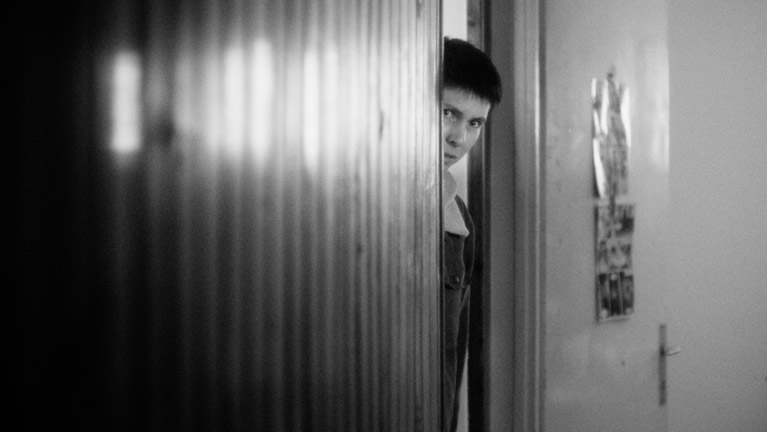
Batim
Houses
Sasha is non-binary and came to Israel from the Soviet Union as a child in the 1990s. Haunted by memories, they visit the houses they used to live in. A quiet meditation in black and white on what it means to feel at home in a house, a body, and in time.
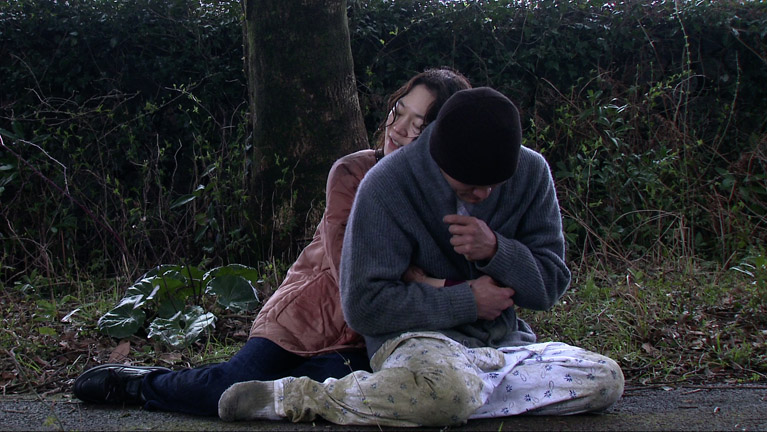
Bombam
Spring Night
An alcoholic woman and an ailing man forge a life-affirming bond, but old habits die hard. Kang Mi-ja’s austere drama with the great Han Ye-ri in the lead casts an unsparing eye on the ill-fated romance between two lonely souls, crippled by their past.
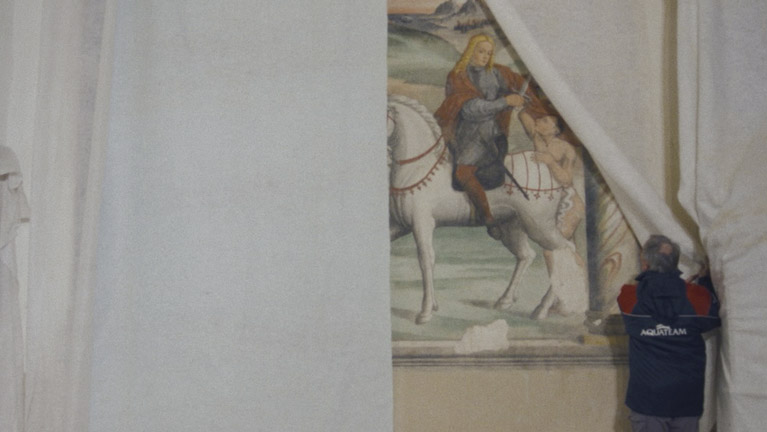
Canone effimero
Moving through Italy’s regions, the De Serio brothers come across an alternative popular culture and shoot a square-shaped film about polyvocal songs, music ethnology and oral tradition. Radically contemporary, energetic, close to nature, local. Lyrical.
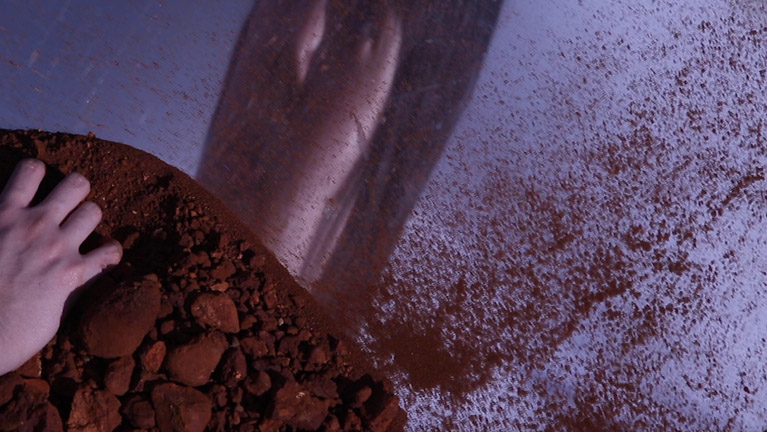
Cartas do Absurdo
Letters from Absurd
The end of the world described in four letters written by native Brazilians in the 17th century: Cartas do Absurdo deals with the devastating effects of the genocide of Brazil’s Indigenous peoples over the last five centuries.

Chas pidlotu
Time to the Target
Spring, summer, autumn, winter... still war in Lviv, western Ukraine. Torn between normality and a state of emergency. For one year, Mansky follows the life cycle of a society’s grieving rites and everyday rituals, where death is the order of the day.
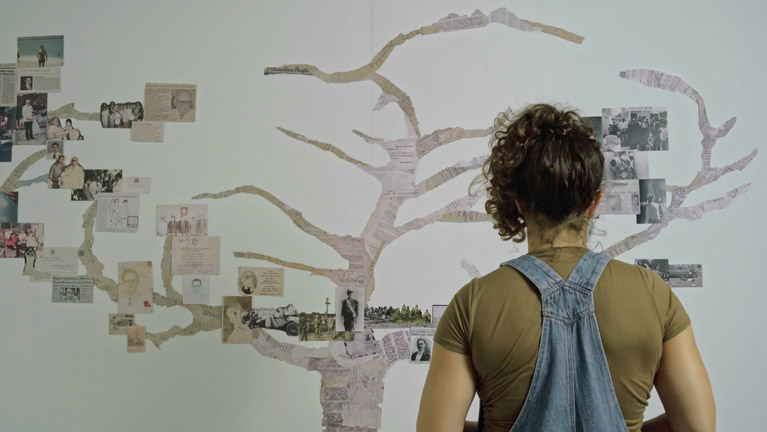
Colosal
Colossal
Genealogy, uncomfortable questions and reams of archival material are Tavares-Abel’s tools in discovering the political truths of her family and the Dominican Republic. Election fraud and dictatorship are frighteningly topical. Activism suggests itself.

Crash Site/My_Never_Ending_Burial_Plot
This film is the sixth episode in the serial-based project X Characters, which revolves around the attempt to update the identities of iconic female film characters from modern cinema to produce contemporary versions of them.
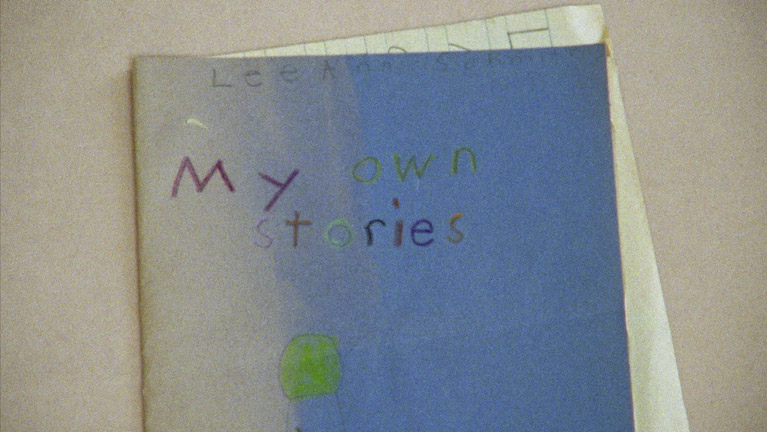
Evidence
Taking her dad’s job at the Olin Corporation as a starting point, Lee Anne Schmitt interweaves meditative reflections on her biography and her own body with a history of the rise and widespread influence of conservative think tanks in the United States.
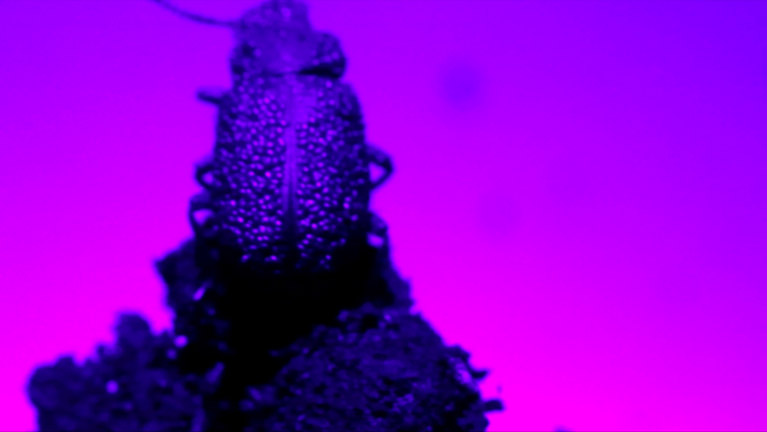
Extra Life (and Decay)
A polyphonic narrator – filmmaker, parent, forest, insects, fungi, childcare worker – declares their absolute refusal of labor exploitation, and their necessity to join collective bodies in resistance.
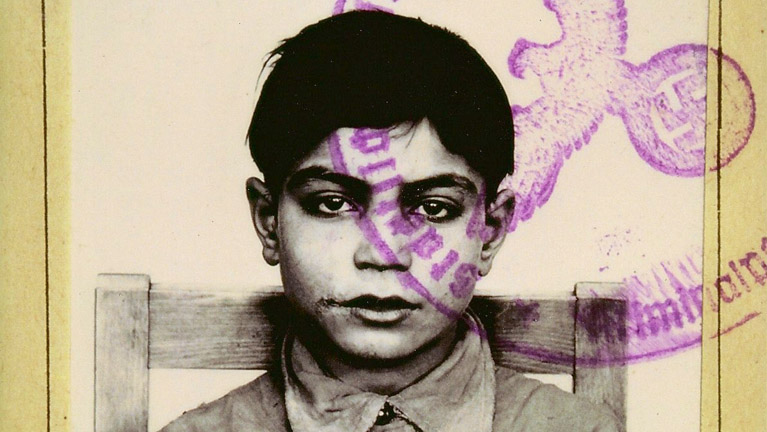
Das falsche Wort
The Lie
As the child of survivors of the Sinti persecution by the Nazis, Melanie Spitta holds the “thread of the truth” in this film. “Reparations” - a lie! “The courts believed the perpetrators, not us.” Shock, evidence, warning, accusation.

Generations
Celebrating Hammer’s spontaneous shooting style and dense editing montage with Carducci’s studied cinematography, the two filmmakers, generations apart in age, shoot the last days of the amusement park Astroland in Coney Island, New York.
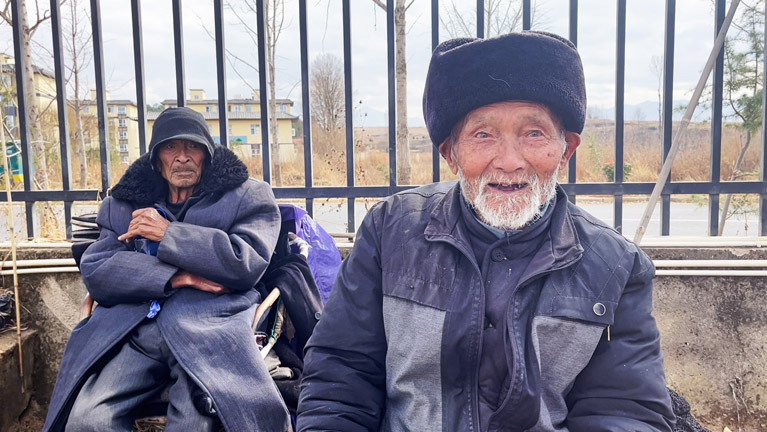
Guochang
Fruit Farm
Nana Xu travels to the place built by her father as a prisoner during the Cultural Revolution: first a work camp, later a prison, fruit farm and treatment centre. Conversations with last remaining witnesses, where home is still shaped by a repressed past.

Holding Liat
Liat is one of the hostages taken on October 7. The film follows her relatives from right up close, with a focus on her father, as he tries to stay on the path of pacifism and humanity amidst war, trauma and diplomacy.

A Horse Is Not a Metaphor
As a “cancer thriver” rather than “survivor,” Barbara Hammer rides through American landscapes changing illness into recovery.
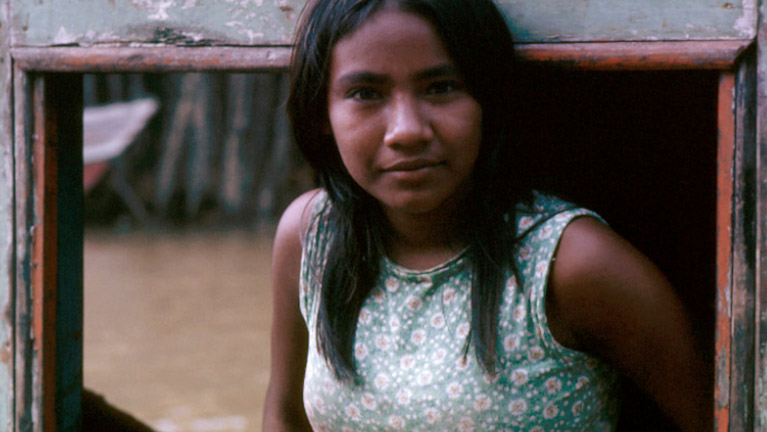
Iracema, uma transa amazônica
Iracema
A young Indigenous woman leaves the village for the city. Cinema Novo, hybrid fiction, road trip and an ecological avant-garde perspective, Iracema shows that trees, animals and people were already being destroyed by extractivist capitalism 50 years ago.
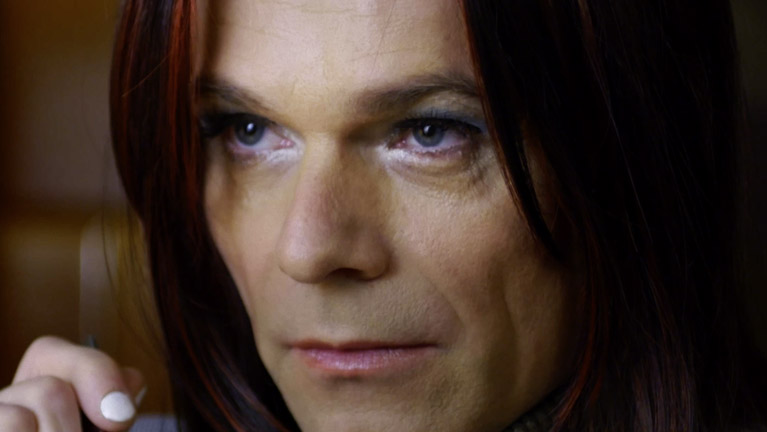
Janine zieht aufs Land
Janine Moves to the Country
Far away from the big city, Janine is unwelcome, yet an eye-catcher: a sensual, queer subject of projection with wine-red hair. Jan Eilhardt travels with her to engage with his own rural past, opening old wounds and infiltrating a hostile milieu.

little boy
A film looking at the past to warn about the future, from a little boy’s point of view. A companion piece to American Dreams (lost and found) (1984).
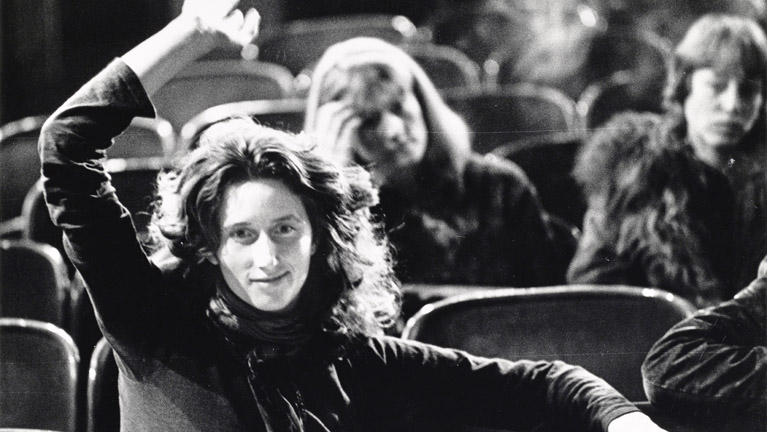
The Long Road to the Director's Chair
In 1973, Vibeke Løkkeberg filmed the beginnings of the feminist film movement at the First International Women’s Film Seminar, held at the Arsenal cinema. Her footage was lost for 50 years. Today, it confronts us with past battles still yet to be won.

Lunch Break
Lunch break at the Bath Iron Works shipyard in Maine. 42 workers look for somewhere to eat, dose, chat, or read along the locker-lined corridors that stretch across the entire shipyard.

Maya Deren’s Sink
This evocative tribute to the mother of American avant-garde film provides an elusive agency for a filmmaker who was larger than life, as recounted by those who knew her.

La memoria de las mariposas
The Memory of Butterflies
Emerging from the shadows of the rubber trade, the lost stories of Omarino and Aredomi are revealed. A journey through Amazonian archives connects research, speculation and the filmmaker’s own family history, invoking a dialogue between the living and the dead.
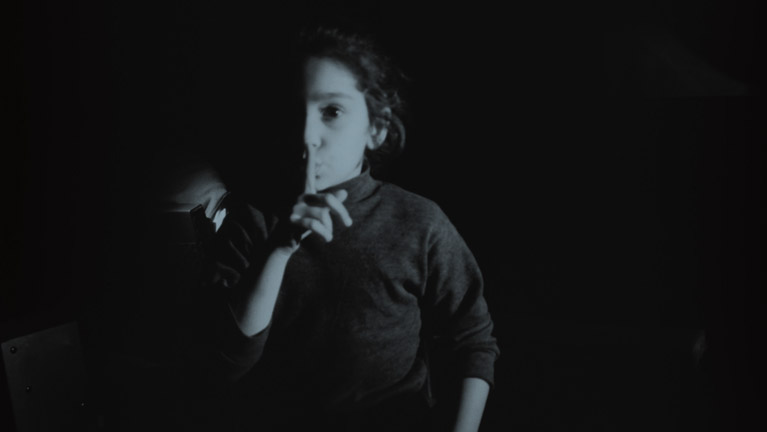
Mes fantômes arméniens
My Armenian Phantoms
A tender posthumous letter to Tamara’s father, who was a film actor in Soviet Armenia. She already watched him on TV as a child before later establishing herself as a filmmaker. A captivating sleepwalk through the landscapes of Armenian film history.